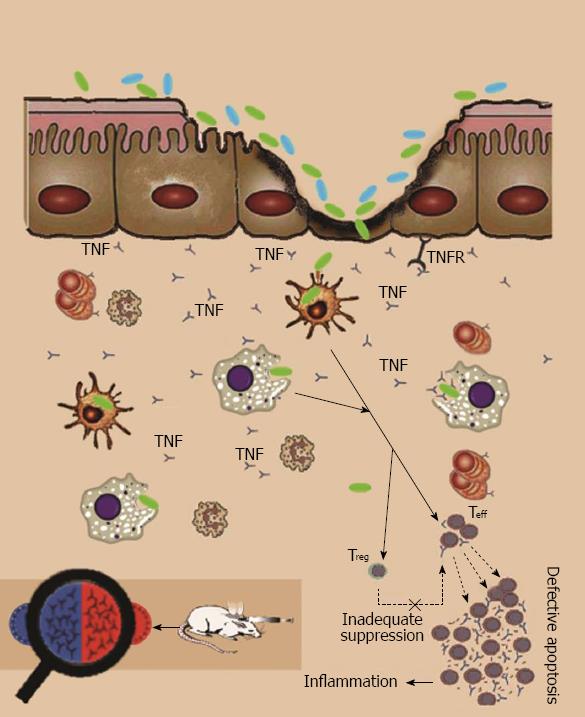Copyright
©2013 Baishideng Publishing Group Co.
World J Gastroenterol. Nov 21, 2013; 19(43): 7569-7576
Published online Nov 21, 2013. doi: 10.3748/wjg.v19.i43.7569
Published online Nov 21, 2013. doi: 10.3748/wjg.v19.i43.7569
Figure 2 Steps of autoimmunity.
If anything alters the barrier function, lots of luminal antigens can pass to the submucosal layer. If these cells can control the invasion, it is not necessary to call adaptive immunity components, but if the invasion take longer (e.g., in altered tight junction structure) or there are some defects in innate immunity response (e.g., mutations in Toll-like receptors), T cells are activated. If the regulatory system cannot overcome the inflammatory systems, cytokines and reactive destructive mediators further deteriorate the first defect via inducing apoptosis and necrosis in epithelial cells. Activation of T helper type 2 cells leads to a humoral response; also administration of a vaccine of commensal bacteria leads to a humoral immune response to their antigens, so after a disruption in barrier integrity with ethanol, the inflammatory cascade will turn on and induce inflammatory bowel disease in the animal as shown by histopathological findings. TNF: Tumor necrosis factor; TNFR: TNF receptor.
- Citation: Esmaily H, Sanei Y, Abdollahi M. Autoantibodies and an immune-based rat model of inflammatory bowel disease. World J Gastroenterol 2013; 19(43): 7569-7576
- URL: https://www.wjgnet.com/1007-9327/full/v19/i43/7569.htm
- DOI: https://dx.doi.org/10.3748/wjg.v19.i43.7569









